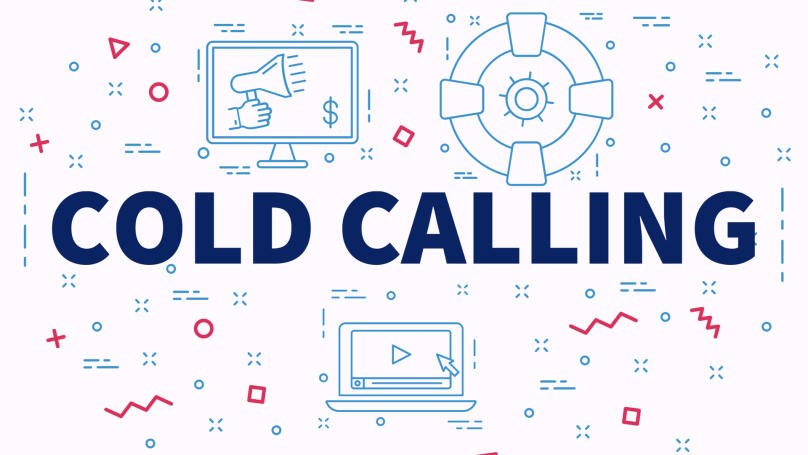Cold calling
What is cold calling?

Cold calling is calls to people who have not had any prior contact with a company and have not searched for any information about its services. This is the difference between cold and warm calling: in the latter instance, customers are already mentally prepared to make a purchase from the company, while in the case of cold calls, they are not ready to make a purchase or have no interest in the products. That's why cold calling have a low conversion rate. Don't write off cold calling just yet though: a recent study by the RAIN Group research discovered that 69% of customers still respond to cold calls, and any contact with a potential customer is a chance to make a sale.
Cold calling is mainly a direct selling tool. The ideal cold-call scenario assumes that the customer will make a purchase. The success of any cold calling depends on the following four key factors:
- Contact database.
- Cold call script for the salesperson.
- Training for sales staff.
- Call quality monitoring.
Although the goal of a cold calling in most cases is to sell a product, it can be used for other challenges as well. For example, for a novice real estate agent, cold calling is an excellent way to build a potential customer database. Even in this case, however, before making calls, you have to build a contact database.
A contact database for cold calling

A cold calling technique assumes that a company has a contact database of potential customers. Ideally, customers should be warm, interested in buying a product in general, even if they are not ready to purchase it at the moment. In order to compile a database of contacts like this, you have to:
- Search for customers manually, for example, by collecting their phone numbers from a site with announcements. This type of search can be time-consuming and ideally should be performed by a dedicated employee.
- Use parsing. A dedicated software collects the contacts of potential customers from ad sites or directories using a parsing process. You can buy this kind of software from a freelancer. Or you could purchase a database of phone numbers collected using parsing.
- Purchase a ready-made database of phone numbers collected by another company. The major disadvantage of this method for collecting phone numbers is that it is very expensive.
Regardless of how a company compiles a contact database to accomplish its goal (close a deal, make a collaboration agreement), it will need an appropriate cold calling script for the salesperson.
The perfect cold calling script for a salesperson

In simple terms, a sales script is a conversational plan for a dialogue between a salesperson and a customer. The conversation structure should include typical responses from potential customers. Thus, providing for the various scenarios of a dialogue.
Any example of a sales script should include a greeting. Politeness and respect are essential components of any script. What type of questions and information to include in the script will vary depending on the company's business field.
In the B2B area, the sales script should include a secretary bypass; without this, a salesperson will not reach the right person in charge to buy products. So, how do you bypass a secretary? The most effective method is to present the company's offer in such a way that the secretary believes it is worthy of their attention. The sales script for a person in charge must be different from the one for the secretary.
Working with cold calling inevitably includes changing the sales script depending on the reaction and needs of customers. Another essential detail is training the sales team for cold calling.
Sales team training

A company can outsource cold calling if it doesn't have the resources to set up its own call centre or organise training for employees. This training can be done by the company's call centre or by individual employees. But in the end, it is necessary to organise training for all salespeople. If your sales staff do not know how to make cold calling, this sales technique will be ineffective.
Fear of cold calling is a common problem faced by sales staff. If these calls are made by employees without experience, they need to be educated or have specific training. To successfully handle cold calling, you must learn how to effortlessly handle refusals. It is also advisable to boost your oratory skills: improve your speech, choose the right intonation, pause, and so forth.
Companies need to continually monitor the quality of calls and evaluate how effective both employees and sales scripts are. What does it mean to control the quality of cold calling? First, it is essential to develop clear criteria for assessing them.
Monitoring cold calling quality

Effective cold calling will only be possible if quality control is maintained and regular audits are carried out to evaluate the effectiveness of the scripts. Scripted checklists can be used to gauge how well sales staff are applying the methods when selling services or selling products. The list should include questions about key points in any dialogue with customers. However, it is necessary to revise the sales process and scripts from time to time.
Sometimes salespeople follow the scripts perfectly, but it leads to fewer purchases. This often occurs when a company uses ineffective sales scripts. To monitor this situation, you need statistics about cold calling, including statistics from checklists. If sales are falling, you have to conduct a market research and analyse what needs to be changed in customer relations. For example, perhaps the sales funnel the company is using is ineffective.
Cold calling is a sales technique that works if you approach it in a smart way: compile a database of phone numbers, create a good script, train sales staff and, most importantly, monitor the process. No sales algorithm, however, is effective once and for all: for scripts to continue to be effective, you need to constantly update and adapt them for different customers.























